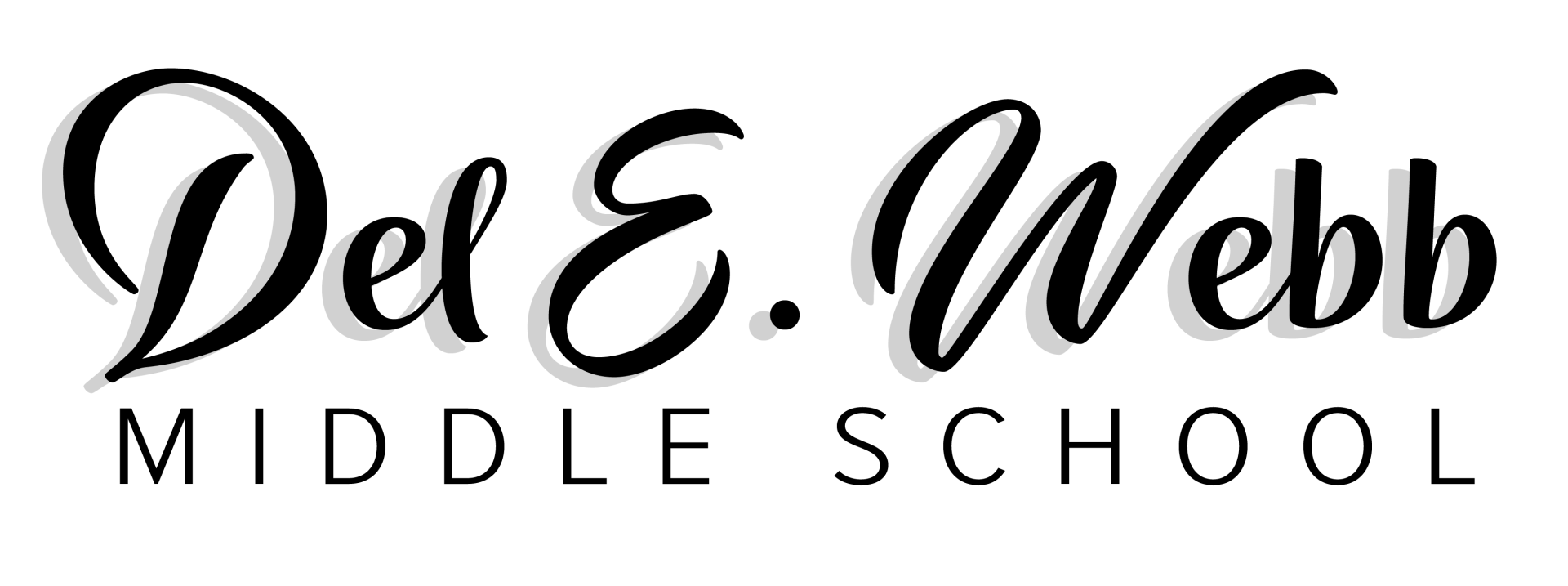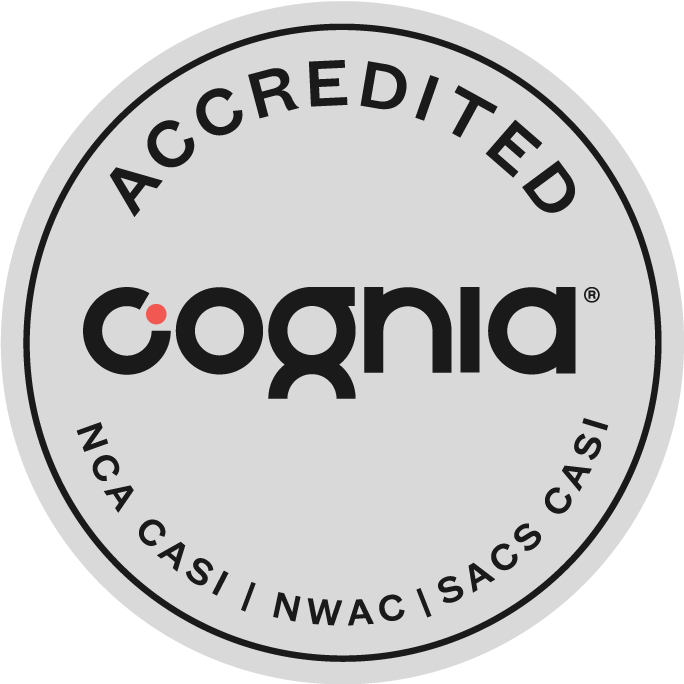MATHEMATICS
REASONING • PERSEVERENCE • MODELING • CRITICAL THINKING • APPLICATION
Mathematics 6, 7, & 8
The Del Webb Middle School Mathematics curriculum encompasses a comprehensive series of courses, aligned with the Common Core State Standards (CCSS), and designed to build foundational and advanced skills as students progress from 6th to 8th grade. Students begin 6th grade on one of three distinct pathways: a foundational course, an accelerated course leading to Algebra by 8th grade, and an advanced accelerated course preparing for Geometry by the same grade. Each course emphasizes key mathematical concepts such as ratios, rational numbers, expressions, and basic geometric principles, while enhancing critical thinking and problem-solving abilities. As students transition into 7th grade, they engage with more complex topics including proportional relationships and operations with rational numbers. The curriculum continues to advance in 8th grade to Pre-Algebra, Algebra, or Geometry. Throughout all grades, the curriculum actively incorporates manipulatives and technology, and fosters an environment that recognizes various contributions to mathematics. These courses not only fulfill grade-level requirements or offer high school credit, but also prepare students for future academic success in the field of mathematics.
Math 6-8
CCSD Selected Instructional Materials for Math 6-Math 8
Middle School Math Solution Course 1-3 Student Edition, Carnegie Learning
Middle School Math Solution Accelerated Student Edition, Carnegie Learning
Math 6
The one-year 6th grade Mathematics curriculum is designed to cater to the diverse learning needs of sixth-grade students through three distinct but connected course pathways: a foundational course, an accelerated course that will lead to Algebra by 8th grade, and an advanced accelerated course that will lead to Geometry by 8th grade. Each course emphasizes critical mathematical concepts such as connecting ratio and rate to whole number multiplication and division, understanding division of fractions, and extending the notion of number to include rational numbers and negative values. Students will also gain skills in writing, interpreting, and utilizing expressions and equations, as well as developing their understanding of statistical thinking and proportional relationships. Geometry concepts further enhance spatial reasoning through the exploration of two- and three-dimensional shapes, and addressing concepts like area, surface area, volume, and experiences using linear equations. All courses prioritize instructional practices that utilize manipulatives, mathematical tools, and technology—including calculators and computer software—to engage students actively. All levels of this course fulfill the 6th grade Mathematics requirement and prepare students for future studies of mathematics.
Math 7
The one-year 7th grade Mathematics course, available in both standard and accelerated formats, emphasizes the development and application of proportional relationships, operations with rational numbers, and working with expressions and linear equations. Students will engage in solving problems related to scale drawings, informal geometric constructions, and analyzing two- and three-dimensional shapes to determine area, surface area, and volume. Additionally, it includes drawing inferences about populations based on samples, as well as formulating and reasoning about expressions and equations, modeling associations in variables with linear equations, and solving linear equations and systems of equations. The accelerated version expands to include an analysis of concepts such as distance, angle, similarity, congruence, and the Pythagorean Theorem. Instructional practices in both courses use manipulatives, mathematical tools, and technology—including calculators and computer software—to enhance student learning. This course fulfills the 7th grade Mathematics requirement.
Math 8/Pre-Algebra
The one-year 8th Grade Pre-Algebra course is structured to concentrate on three key areas: 1) developing skills in formulating and reasoning with expressions and equations, which includes modeling relationships using variables in linear equations, as well as solving linear equations and systems of equations; 2) understanding the concept of a function and utilizing functions to represent quantitative relationships; and 3) exploring two- and three-dimensional shapes by analyzing distance, angles, similarity, and congruence, while also learning to understand and apply the Pythagorean Theorem. Additionally, the course actively integrates manipulatives, mathematical tools, and technology—including calculators and computer software—to enhance the learning experience. This course meets the 8th grade Mathematics requirement.
Algebra
CCSD Selected Instructional Materials
Big Ideas Algebra, Cengage
The one-year Algebra course for middle school students equips students with essential knowledge and skills for advancing their studies in mathematics. It aims to enhance mathematical fluency in areas such as problem-solving, reasoning, modeling, and effective communication, with a focus on numbers, algebra, functions, and statistics. Technology use—including calculators and computer software—is a fundamental component of the course. This course fulfills the Algebra I requirement and contributes to one of the Mathematics credits needed for high school graduation.
Geometry
CCSD Selected Instructional Materials
HMH Geometry, Houghton Mifflin Harcourt
The one-year Geometry course for middle school students offers a comprehensive and rigorous exploration of Geometry. It emphasizes problem-solving, reasoning, modeling, and effective communication through topics such as transformational geometry, trigonometry, measurement, and probability. The course incorporates the use of mathematical tools and technology, including calculators and computer software, as essential components of the learning experience. This course satisfies one of the Mathematics credits required for high school graduation.


